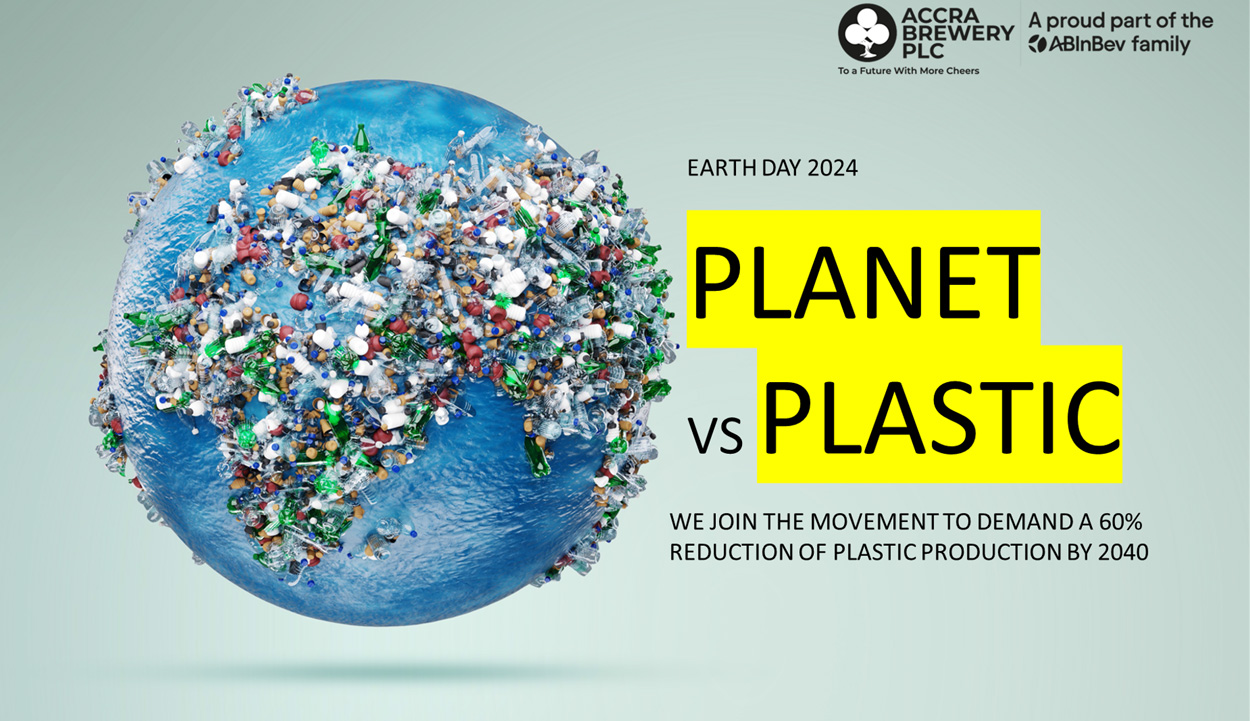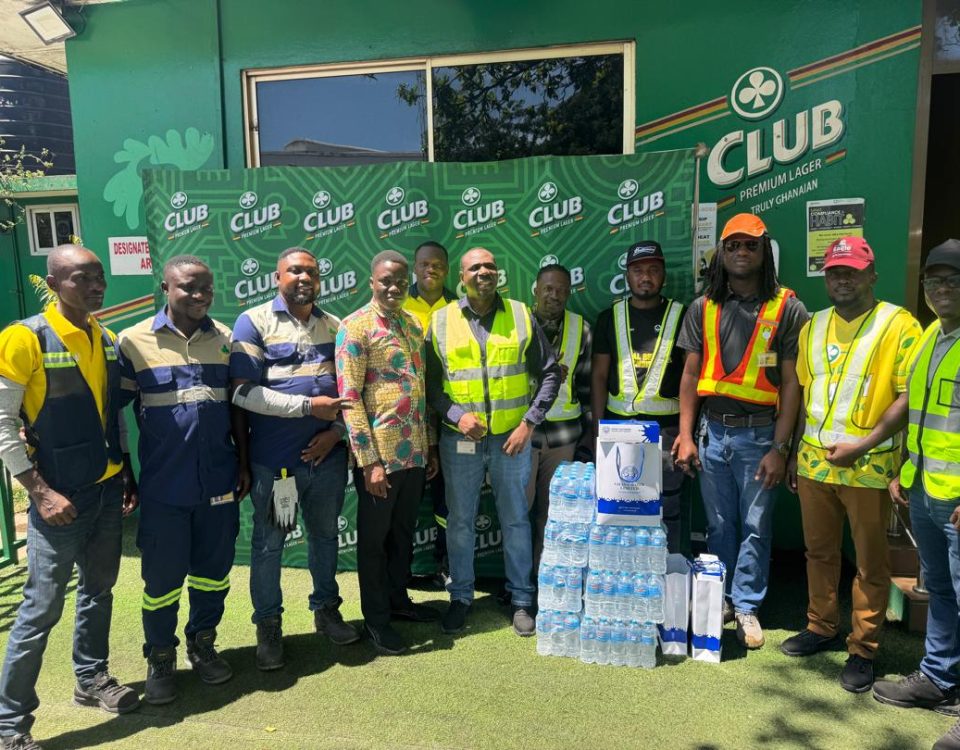This Earth Day, AB InBev Africa and Accra Brewery PLC reaffirms its dedication to sustainability with a continued focus on initiatives aimed at combating plastic pollution to foster a cleaner, healthier planet. AB InBev Africa is actively engaging in sustainable practices to refuse, reduce, reuse and recycle plastic across its value chain and in the communities it serves.
Earth Day, celebrated annually on 22 April, serves as a reminder of the importance of environmental conservation and sustainability. This year’s theme, Planet vs. Plastics, seeks to raise awareness about plastic’s harm to human and biodiversity health. Furthermore, the aim is to achieve a 60% reduction in plastic production by 2040 and phase out single-use plastics by 2030 by embedding these commitments into the United Nations Global Plastic Treaty.
“At Accra Brewery, we understand the critical importance of collective action and collaboration to address the urgent challenges of climate change, ecosystem degradation, and the quest for a sustainable future, says Solomon Ayiah, Head of Legal and Corporate Afairs”.
“Akosua Mpare, Communications Specialist also stated “As stewards of this planet, it’s incumbent upon all of us — consumers, businesses, and industry peers — to make informed choices that prioritise environmental sustainability. By working together, we can enact positive change and safeguard the health of our planet for a future with more, greener cheers.”
With a deep-rooted commitment to environmental stewardship, ABL recognises the urgent need to address plastic use and waste in its business. The company is taking proactive steps to minimise its environmental footprint and promote a circular economy.

Key initiatives spearheaded by AB InBev Africa include:
Reducing plastic packaging: AB InBev Africa is committed to minimising the use of plastic packaging throughout its supply chain. Only 0.5% of the company’s production volume is in polyethylene terephthalate plastic (PET) packaging. By implementing alternative sustainable materials and innovative packaging solutions, the company aims to significantly reduce its plastic footprint.
For example, Tanzania Breweries Limited eliminated the use of PET bottles for its non-alcoholic malt beverage Grand Malt, exclusively packaging it in aluminium cans.
Recycling and circular economy: One of AB InBev’s 2025 sustainability goals is to ensure that 100% of its products are in primary packaging that is returnable or made from at least 50% recycled content. AB InBev Africa also prioritises recycling initiatives to ensure that plastic waste is collected, sorted, and recycled efficiently. Partnerships with local organisations and entrepreneurs, and investments in recycling infrastructure support the company’s efforts to promote a closed-loop system.
At its breweries in Ghana and Botswana, the company has implemented a waste segregation at source system where different colour bins have been placed across the site to collect specific streams of waste. Accra Brewery PLC in Ghana has also sourced buyers for flawed preforms, cartons, waste rubber, crown rejects and cullet (broken glass). All recyclable materials generated within Zambian Breweries Plc’s operations are efficiently recycled through its subsidiary, Manja Pamodzi.
Community engagement: AB InBev Africa recognises the importance of community engagement in addressing plastic pollution. Through educational programmes, clean-up campaigns, and advocacy efforts, the company is mobilising employees, consumers, and stakeholders to participate in collective action against plastic waste.
For example, the Manja Pamodzi recycling initiative pioneered by Zambian Breweries Plc is a community-driven initiative that is aimed at creating collector networks and aggregator sites that enhance the recycling value chain through the collection of post-consumer packaging waste, such as PET, HDPE, LDPE and PP plastics, conical cartons, cardboard, paper and aluminium cans. The incentivisation initiative, aimed at creating a clean environment whilst improving livelihoods for communities, was implemented in response to Extended Producer Responsibility legislation. To date, Manja Pamodzi has collected over 14,000 tonnes of waste, reached 11 aggregator sites, and engaged 850 collectors (76% female) in 14 districts in Zambia.
In 2022, International Breweries in Nigeria piloted a waste collection programme with Recycle Points where two recycling banks and five Dori Bins were deployed in two districts. During the 12-month pilot, 68 tonnes of waste was collected (of which 91% was plastic waste), 230 waste pickers were engaged (85% female), 80 aggregators were onboarded, and 23 direct green jobs were created. In South Africa, Corona,- the first global beverage brand with a net zero plastic footprint, has partnered with a 100% black-owned, female business to collect hard-to-recycle plastics in the Gauteng and Free State region. To date, Ramtsilo has collected over 70 tonnes of hard-to-recycle plastic and empowered many waste pickers.
Innovation and research: AB InBev Africa is actively pursuing innovative solutions to tackle plastic pollution, investing in research and development to drive sustainable innovation. AB InBev’s sustainability incubator, 100+ Accelerator is dedicated to working with startups that have innovative solutions, for instance, alternatives to single use plastics. The company is also exploring options such as incorporating recycled content in PET bottles.
In recognition of the Earth Day movement, AB InBev Africa will continue to prioritise sustainability and environmental responsibility, working towards a future where plastic pollution is a thing of the past.
For more information about AB InBev’s sustainability initiatives, please visit https://www.ab-inbev.com/sustainability.













